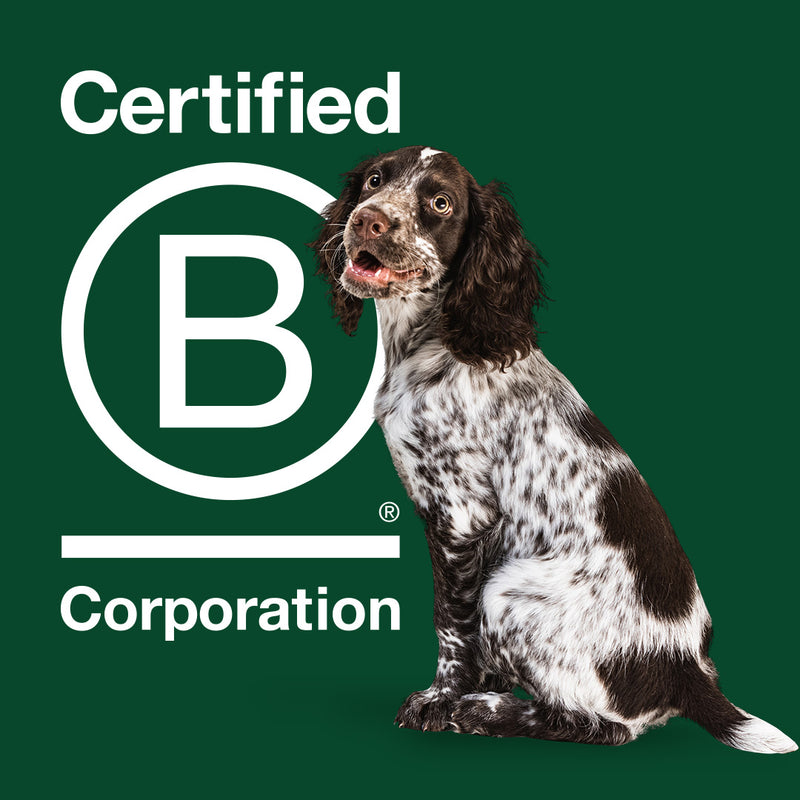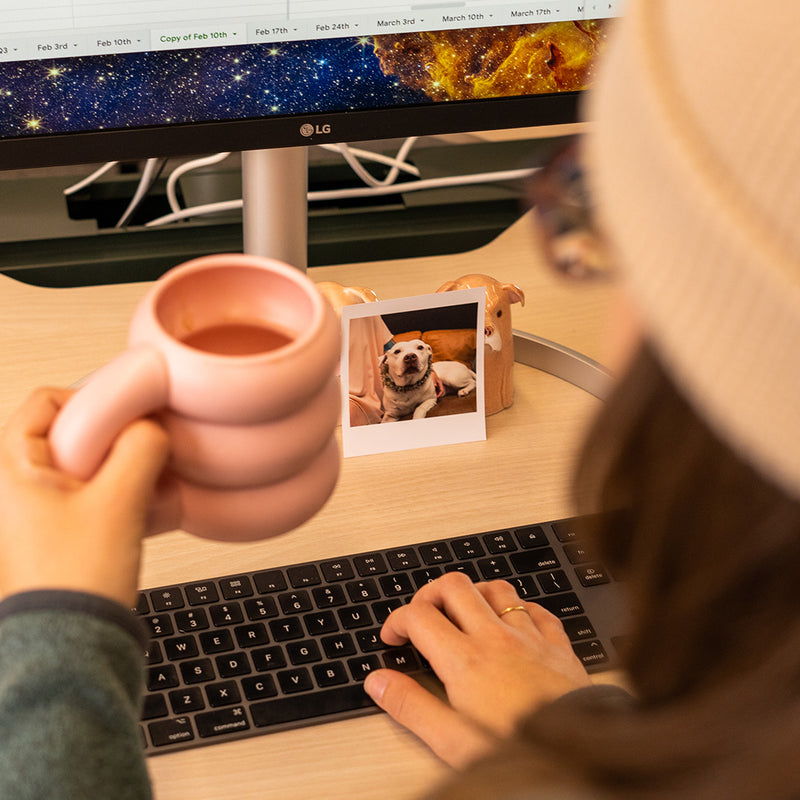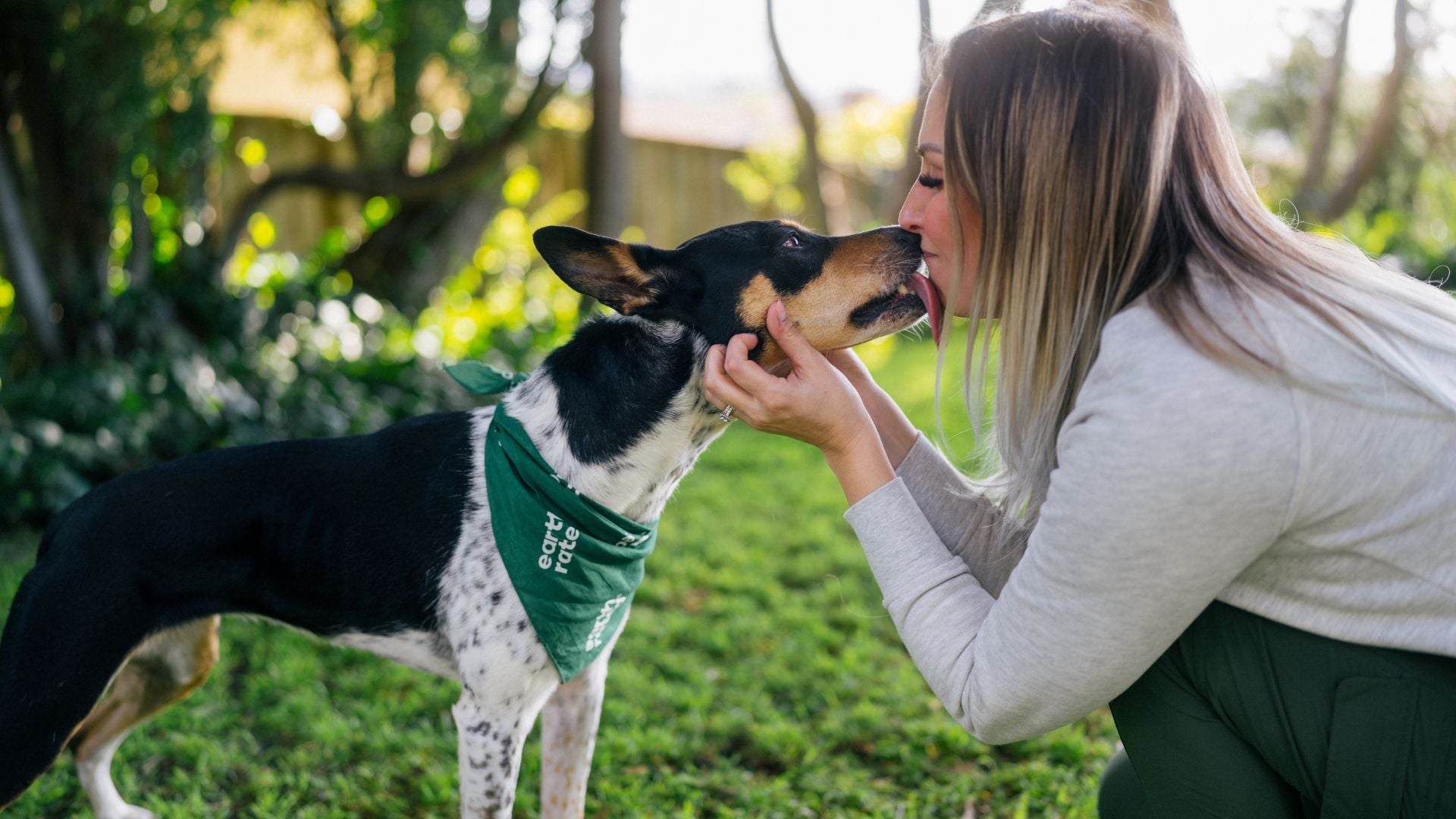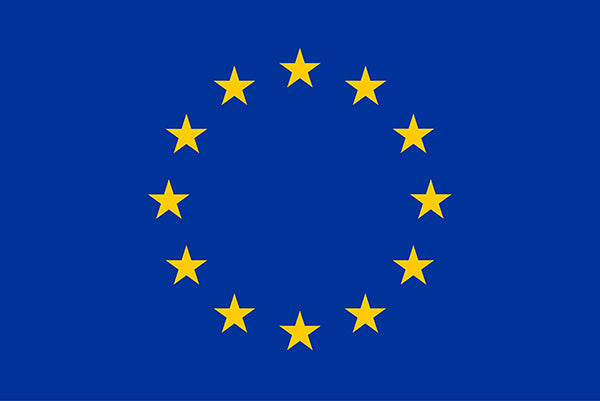Dogs are masters of communication, expressing themselves through wags, barks, and, yes, even licks. But have you ever wondered why dogs lick you?
While a lick might seem like a straightforward gesture, force-free dog trainer Aryel Lafleur explains that there can be several reasons behind this dog behavior—and not all of them are positive!
So, let’s take a deeper look at the surprisingly complicated world of dog licking, uncovering why your dog sometimes showers you with big wet kisses. 👅
Affection and Bonding
Let's face it, sometimes a dog's love can be a little...sloppy! But behind all that slobber lies a heartwarming truth: licking is a BIG part of how dogs show affection and bond with their humans.
In the early stages of their life, puppies are licked by their moms which would have provided them with comfort. That association of licking and comfort is then carried over into adulthood, where licking is used to provide comfort to someone or something else.
Most dogs lick to show affection, even if they don’t do it all that much. According to Aryel, “Dog breeds that are generally very social might engage a little bit more and lick their owners more often.”
Personal preference does play a role, too. Aryel has three dogs, and they all lick her in different amounts!
Dogs will also lick other dogs to groom them as a form of bonding. So if your pup can’t resist giving you a lick on the ear, they might just be trying to groom you to bond with you. And how cute is that? 🥹
Taste and Sensory Exploration
Does your dog sometimes seem weirdly obsessed with licking your toes and feet? Dogs don’t have fancy opposable thumbs like us, so they have to rely on a different tool for exploring the world: their mouths.
Licking allows them to taste and smell their environment simultaneously. And yes, sometimes, that includes your post-workout arms, hands, and feet. So, if your dog only licks you when you’re sweaty, they could be enjoying the taste of that salty sweat!
Aryel explains that her beagle only licks her after she’s put cream on her skin.“Some dogs seem to enjoy the taste of sweat, moisturizing creams, and other substances.”
And, hey! Who are we to judge their culinary preferences?
Social Hierarchy and Dynamics
Licking isn’t just about doggy kisses and questionable flavors. It plays a major role in how dogs interact with each other too.
In the dog world, muzzle licking can signify submission and respect, even when humans reduce the risk of actual competition between dogs.
When two dogs meet, the shyer, smaller dog may offer a conciliatory lick to the bigger dog. Basically saying, “Hey there, big guy, I am not going to fight you!” It’s a doggy handshake that translates to “I come in peace.” 🤝
Simply put, licking can be seen as good manners in the dog world.
Stress Relief and Anxiety
As we hinted above, licking isn’t always a positive thing. Excessive licking can sometimes signify something deeper, like stress and anxiety. Dogs may use licking to “dismiss” someone who is bothering them. In a dog’s mind, if they lick the overly friendly human, they may leave them alone.
Aryel explains that “dogs may express discomfort in various ways, including stiffening, growling, or excessive licking of the face or hands. You may observe this behavior when unfamiliar people or children interact with the dog.”
Licking can also be a stress reliever. Excessive grooming can be worrying if the licking causes sores, which can become infected. If you notice this, you may want to consider ways to destress your pup that doesn’t involve licking.
Here are a few tips:
- Channel their inner chewphoria: Give your pup plenty of stimulating chew toys to keep them occupied and mentally engaged. These toys allow your dog to use their mouth how they want without harming themselves.
- Exercise is key: Physical activity can be a great stress reliever for your pup. Just like humans, moving makes dogs feel calmer and happier. A dog that is cooped up for a long time is more likely to be stressed. Just 25 minutes of exercise can help lower stress levels.
- Create a safe haven: When overwhelmed, your dog should have a place to retreat. If you haven’t crate-trained your dog, you can consider doing so. Crate training helps your dog feel safe in a cozy crate and allows them access to that crate whenever needed.
Medical and Behavioral Concerns
While a happy lick here and there is nothing to worry about, excessive licking can indicate an underlying health problem. Here are some signs that a call to the vet is in order:
- Licking on a specific area? If your dog is fixated on licking or chewing one particular spot, like their paw, it could be a sign of allergies. “Look out for reddish or rusty-colored paws; if present, it's essential to consult a vet!” explained Aryel. Try using gentle dog grooming wipes to remove dirt and allergens if you suspect this is causing the excessive licking.
- Dental problems? If your dog’s mouth hurts, excessive licking may also occur. Aryel recommends checking your dog’s mouth if you suspect a dental issue: “If you notice brown or greenish buildup on their teeth, angry red gums, or bad breath, it's a sign of dental issues that require veterinary attention.” To prevent dental problems, be sure to keep your dog’s teeth clean.
- Anxiety overload? As mentioned above, stress can also cause licking. Sometimes, this can be so severe that a call to your vet or a consultation with an animal behaviourist is needed.
If you’re unsure if it’s a medical problem, it’s best to be cautious and speak to your vet. They can help identify if any medical problems are present or if something else may be causing the excessive licking.
How to React to Dog Licking
Now that you know why your dog is licking, you may wonder what the best way to respond is. Here’s some tips:
Read the situation: Not all licks are the same! It could signify affection or stress. Consider the lick's context to determine the best reaction.
Attention-seeking behavior: If your dog licks you for your attention and you don’t like it, redirect their energy to a toy. Try not to reward the licking. Otherwise, it may just continue!
Respect boundaries: If your dog’s licking is overwhelming, moving away is okay. Just try not to push your dog or show any sort of attention. If your dog seems prone to obsessive licking, consider stuffing an Earth Rated Enrichment Toy to help keep their mouth busy.
Positive reinforcement is key: Whenever your dog does something you like, it’s important to reward them with treats, praise, or attention. Use this to help control their licking, too. If you’d prefer your dog not to lick, give them more attention when they don’t.
Final Thoughts
Your dog is licking you for many different reasons so it’s a good idea to read their body language and environment to determine what is causing this behavior. The great news is that your dog’s lick could be their way of giving you wet doggy kisses!
This is not always the case though, and your dog may just be trying to get your attention or is enjoying the way you taste! Whatever the reason, understanding what they are trying to communicate to you will help you build a strong and loving bond with them.
FAQs
Why do dogs lick their owners?
Dogs lick their owners to show affection, grab their attention, because they like the taste, and in some cases, to dismiss the owner so they will leave them alone.
Do dog licks always mean kisses?
Dog licks do not always mean kisses. Lots of time, a dog lick is a sign of affection and bonding. But in some cases, a dog lick is to grab your attention or dismiss you so you’ll walk away.












